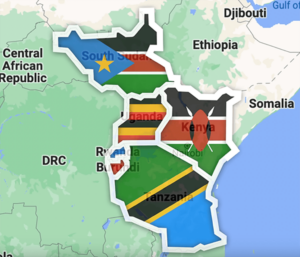Introduction
Starting a bakery business in Nigeria involves establishing a venture that specializes in the production of baked goods such as bread, cakes, pastries, and snacks. Nigeria, as a populous country with a diverse culinary heritage, offers you a promising market for bakery products.
As you embark on this entrepreneurial journey, understanding the local preferences and regulatory requirements is crucial. You will need to navigate through procedures such as obtaining business licenses, adhering to health and safety standards, and sourcing quality ingredients.
The bakery sector in Nigeria is vibrant but competitive, demanding dedication and strategic planning to succeed. Your bakery can cater to a variety of consumer needs, from everyday breakfast items to custom celebration cakes, tapping into the growing demand for quality baked goods.
By focusing on freshness, taste, and customer satisfaction, you can carve out a niche in this dynamic industry and contribute to the local economy through job creation and culinary innovation.
To Start a Bakery Business in Nigeria:
1. Research Local Market
To successfully launch a bakery business in Nigeria, start by thoroughly researching the local market. Understand the dynamics of the bakery industry here, including popular products like bread, cakes, and pastries.
Analyze consumer preferences, pricing trends, and the competitive landscape. Pay attention to cultural influences on food choices and regional variations in tastes. By gaining insights into these aspects, you can identify gaps in the market and opportunities to differentiate your bakery offerings.
Use this information to refine your business concept and develop a strategy that resonates with Nigerian consumers. Engaging in market research ensures that you enter the market informed and prepared to meet the demands of your target audience.
2. Develop a Business Plan
Crafting a comprehensive business plan is essential for starting your bakery business in Nigeria. Your plan should articulate your business objectives, target market demographics, product lineup, pricing strategy, and marketing approach.
Detail your operational plan, including sourcing ingredients, production processes, and distribution logistics tailored to Nigeria’s market dynamics. Conduct a thorough analysis of financial projections, considering startup costs, ongoing expenses, and revenue forecasts based on market research findings.
Include contingency plans for potential challenges such as supply chain disruptions or fluctuating ingredient costs. By developing a well-structured business plan, you not only clarify your business goals but also demonstrate your readiness to potential investors or lenders in Nigeria’s competitive business landscape.
3. Find a Suitable Location
To attract customers and ensure accessibility, it’s essential you find the right location for your bakery business in Nigeria. You need to choose a location with high foot traffic, such as busy streets, shopping centers, or near residential areas.
Consider the demographics of the area to ensure your products match local tastes and preferences. Ensure the location has reliable utilities, especially electricity and water, as these are crucial for daily operations.
Verify that the premises meet health and safety regulations and have adequate space for baking, storage, and customer service. Negotiate favorable lease terms and ensure you understand any zoning laws or permits required for a food business.
By carefully selecting a strategic location, you position your bakery for visibility and convenience, helping you attract a steady flow of customers and establish a strong presence in the Nigerian market.
4. Register Your Business
Registering your bakery business in Nigeria is a critical step to ensure legal compliance and establish credibility. Begin by choosing a suitable business name that reflects your brand identity and resonates with your target market.
Next, determine the legal structure of your business, whether it’s a sole proprietorship, partnership, or limited liability company (LLC). Prepare the necessary documents, including identification, proof of address, and business incorporation forms, to submit to the Corporate Affairs Commission (CAC).
This process involves paying registration fees and obtaining a certificate of incorporation, which legitimizes your bakery business in Nigeria. Compliance with local regulations and taxation requirements is essential for smooth operations and protecting your business interests in the Nigerian market.
5. Secure Funding Sources
Securing adequate funding is crucial for launching and sustaining your bakery business in Nigeria. Start by estimating your startup costs, including equipment, rental expenses, initial inventory, and operational expenses for the first few months.
Explore financing options such as personal savings, loans from financial institutions, or partnerships with investors interested in the food sector. Consider government-backed loans or grants aimed at supporting small and medium enterprises (SMEs) in Nigeria.
Prepare a detailed financial plan and business projections to present to potential lenders or investors, showcasing the viability and growth potential of your bakery business. By securing reliable funding sources, you ensure financial stability and enable strategic investments in marketing, product development, and expanding your bakery operations across Nigeria’s competitive market landscape.
6. Equip Your Bakery Space
You need to set up your bakery space in Nigeria and this process requires careful planning and investment. Ensure the space is equipped with essential bakery equipment such as ovens, mixers, proofers, and refrigeration units. Consider the layout for efficient workflow and customer access.
In Nigeria, it’s important you prioritize reliable electricity supply and backup options to avoid interruptions in bakery operations. Customize your space to reflect your brand identity, creating a welcoming ambiance for customers. Make sure you invest in quality furniture, display shelves, and signage that highlight your bakery products.
By optimizing your bakery space, you create a conducive environment for production, customer service, and showcasing your offerings to attract and retain customers in Nigeria’s competitive bakery business landscape.
7. Source Quality Ingredients
Make sure you source high-quality ingredients as it is crucial for maintaining the taste, freshness, and appeal of your bakery products in Nigeria. Identify reputable suppliers who offer fresh flour, butter, sugar, eggs, and other essential baking ingredients.
Ensure suppliers adhere to food safety standards and provide consistent quality to meet customer expectations. Consider local sourcing options to support Nigerian agriculture and reduce transportation costs. Build strong relationships with suppliers to negotiate favorable terms and secure reliable deliveries.
Conduct regular quality checks on ingredients to maintain product consistency and address any issues promptly. In Nigeria, where consumer preferences vary by region, tailor your ingredient selection to local tastes and dietary preferences.
By prioritizing quality ingredients, you enhance the reputation of your bakery business and differentiate yourself in the market, attracting loyal customers who value freshness and taste.
8. Market Your Bakery
Now that your bakery business in Nigeria is set up, it’s crucial to effectively market it to attract customers and build a strong brand presence. Start by defining your target audience—you need to understand who your potential customers are and where these customers can be reached.
Utilize social media platforms such as Instagram, Facebook, and Twitter to showcase your bakery products creatively. Engage with your audience by sharing behind-the-scenes content, customer testimonials, and special promotions that resonate with them.
Leverage local online directories and food delivery apps to expand your reach and accessibility. Create a visually appealing website that highlights your bakery’s story, menu offerings, and contact information.
Implement search engine optimization (SEO) strategies to ensure your website ranks well in online searches. Collaborate with local influencers, food bloggers, and community events to increase brand visibility and credibility.
Also, you should offer tasting sessions, discounts, or loyalty programs to encourage repeat business and word-of-mouth referrals. By consistently promoting your bakery business with a customer-centric approach, you can establish a loyal customer base and achieve long-term success in Nigeria’s competitive market.
Recap
To start a bakery business in Nigeria, you need to research the local market, develop a solid business plan, find a suitable location, register your business, secure funding, equip your bakery, source quality ingredients, and market your bakery effectively. This comprehensive approach ensures your bakery thrives in Nigeria’s competitive market.

















